Plant Structure and function -> gymnosperms
Gymnosperms
Gymnosperms are a group of seed-producing plants that include conifers, cycads, ginkgo, and gnetophytes. They are known for their "naked seeds," which are not enclosed within an ovary or fruit. Gymnosperms are an important group of plants with unique characteristics and ecological significance.
Characteristics of Gymnosperms
- Naked Seeds: Gymnosperms produce seeds that are not enclosed within a fruit or ovary. The seeds are often found on the surface of cone scales or exposed on the surface of reproductive structures.
- Cones: Gymnosperms typically produce cones as part of their reproductive structures. These cones can be either male (pollen cones) or female (seed cones).
- Needle-like or Scale-like Leaves: Most gymnosperms have needle-like or scale-like leaves, which help reduce water loss and protect them from harsh environmental conditions.
- Woody Stem: Gymnosperms are characterized by having a woody stem, which provides structural support and allows them to grow tall.
- Adaptation to Cold Environments: Many gymnosperms are adapted to cold environments and can thrive in harsh conditions, such as high altitudes and cold climates.
Examples of Gymnosperms
Some common examples of gymnosperms include:
- Conifers: This group includes pine, spruce, fir, and cedar trees. They are often found in temperate and boreal forests.
- Cycads: Cycads have a tropical or subtropical distribution and are characterized by their large compound leaves and stout trunks.
- Ginkgo: Ginkgo biloba is a unique gymnosperm with fan-shaped leaves and is often used in landscaping.
- Gnetophytes: This group includes three living genera: Gnetum, Ephedra, and Welwitschia, which have diverse forms and habitats.
Importance of Gymnosperms
Gymnosperms play a crucial role in the ecosystem and have several economic and ecological significances:
- Timber Production: Many coniferous trees are valuable sources of timber for construction and paper production.
- Ecological Role: Gymnosperms provide habitat and food for various animals and play a crucial role in forest ecosystems.
- Medicinal Uses: Some gymnosperms have medicinal properties and are used in traditional medicine.
- Landscaping and Ornamental Purposes: Ginkgo and other gymnosperms are often planted for their aesthetic appeal in gardens and urban landscapes.
Study Guide
To study gymnosperms effectively, consider the following key points:
- Understand the unique reproductive structures of gymnosperms, including cones and naked seeds.
- Learn to identify common examples of gymnosperms and their distinguishing characteristics.
- Explore the ecological and economic importance of gymnosperms in various ecosystems and human societies.
- Examine the adaptations of gymnosperms to different environmental conditions, such as cold climates and dry habitats.
- Research specific uses of gymnosperms in industries such as timber production, medicine, and landscaping.
By mastering these key points, you will have a comprehensive understanding of gymnosperms and their significance in the natural world.
.◂Science Worksheets and Study Guides Fourth Grade. Plant Structure and function
Study Guide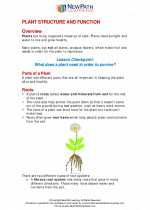 Plant Structure and function
Plant Structure and function  Worksheet/Answer key
Worksheet/Answer key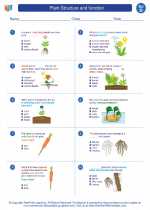 Plant Structure and function
Plant Structure and function  Worksheet/Answer key
Worksheet/Answer key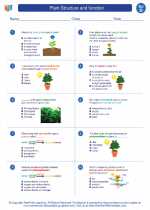 Plant Structure and function
Plant Structure and function  Worksheet/Answer key
Worksheet/Answer key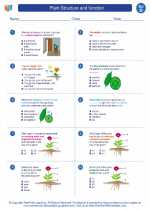 Plant Structure and function
Plant Structure and function  Vocabulary/Answer key
Vocabulary/Answer key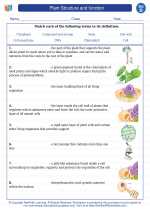 Plant Structure and function
Plant Structure and function  Vocabulary/Answer key
Vocabulary/Answer key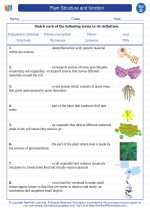 Plant Structure and function
Plant Structure and function  Vocabulary/Answer key
Vocabulary/Answer key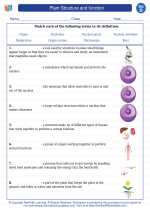 Plant Structure and function
Plant Structure and function  Vocabulary/Answer key
Vocabulary/Answer key Plant Structure and function
Plant Structure and function 

 Worksheet/Answer key
Worksheet/Answer key
 Worksheet/Answer key
Worksheet/Answer key
 Worksheet/Answer key
Worksheet/Answer key
 Vocabulary/Answer key
Vocabulary/Answer key
 Vocabulary/Answer key
Vocabulary/Answer key
 Vocabulary/Answer key
Vocabulary/Answer key
 Vocabulary/Answer key
Vocabulary/Answer key

The resources above cover the following skills:
LIFE SCIENCE (NGSS)
From Molecules to Organisms: Structures and Processes
Students who demonstrate understanding can:
Construct an argument that plants and animals have internal and external structures that function to support survival, growth, behavior, and reproduction.